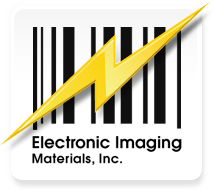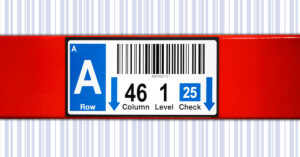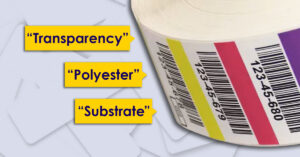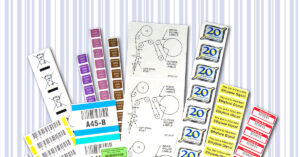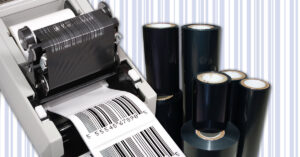Thermal Transfer Label Printers
- Thermal transfer (TT) label printers are the industry choice for high-quality, long-lasting labels.
- TT printers range from entry-level desktop models to industrial-grade, continuous printing systems. Industrial grade printers are best for professional, high volume print runs.
- Thermal transfer printers use ink ribbons made of wax, resin, or a blend of both. Matching labels with the right ribbon will get you the best print quality and durability. All our labels come with ribbon recommendations.
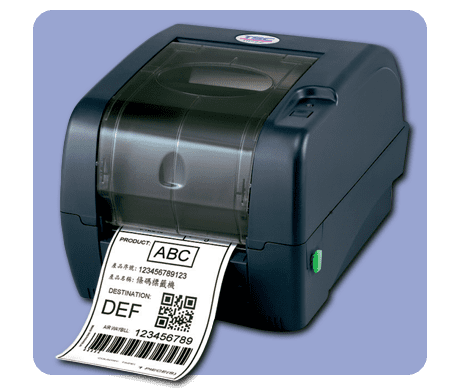
- TT printers’ lower heat settings allow for the widest choice of label options. This includes paper and plastic film labels. This gives you more options for tough label applications, such as chemical resistance, oil resistance, cold and hot temperatures, outdoor exposure, and long-distance scanning.
- Many TT printers can switch to direct thermal printing.
Direct Thermal Label Printers
- Direct thermal (DT) printers are similar to thermal transfer printers, but don’t require an ink ribbon. Instead, direct thermal labels have a layer of chemicals beneath the surface that are heat-activated to create printed images.
- DT labels are not meant for long-term use, especially if there is UV light exposure.
- DT labels offer affordability and easy printer set up, with only one media supply to monitor.
- Labels printed with DT printers are usually not as vibrant and sharp as those produced with TT print. If they are, it is likely you are using too much heat, which can affect line definition and barcode scanner readability.
- There are some models of DT printers that can switch between direct thermal and thermal transfer printing.
Laser / Inkjet Printers
- The biggest drawback to sheet-form printers is you can’t print one label at a time. Every pass through the printer requires printing a whole sheet – even if you only need one or two labels.
- Don’t run a printed sheet back through to print unused labels, as this can jam up your printer.
- Laser or inkjet labels sold in sheets can be a good choice for low-volume, on-demand printing.
- Laser labels’ durability can range from general indoor applications to wet/cold temperature applications.
- Laser labels aren’t recommended for rigorous chemical exposure.
- Inkjet labels use a cartridge system of wet ink and generally have limited durability.
While our guide may be useful, nothing can replace speaking one on one with The Label Experts. We are happy to answer any questions you have about purchasing the best label printer for your needs.
